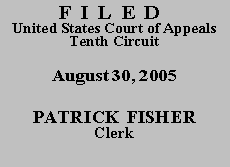

| LAWRENCE L. KELLY,
Plaintiff-Appellant, v. TOPEKA HOUSING AUTHORITY, Defendant-Appellee. |
|
Plaintiff Lawrence L. Kelly, proceeding pro se, appeals the dismissal of this action seeking money damages from defendant Topeka Housing Authority. We affirm.
Mr. Kelly resided with his adult son Michael in the Oakwood Manor Apartments. His rent was paid by defendant under the federal program for low-income housing assistance. See 42 U.S.C. § 1437f. When Michael was arrested and charged with drug-related offenses, including possession, Mr. Kelly and Michael were evicted from the apartment. Oakwood Manor, a landlord receiving rent payments from a federally subsidized source, had cause to terminate the tenancy if a member of the tenant's household engaged in any "drug-related criminal activity on or near [the rented] premises." 42 U.S.C. 1437f(d)(1)(B)(iii). Defendant ceased making Mr. Kelly's rent payments because of Michael's drug-related offenses. See 24 C.F.R. §§ 982.551(l); 982.553(b)(1)(i).
Mr. Kelly sued, contending that his eviction was contrary to federal constitutional and statutory law. He maintained that his son was not on his premises at the time he was accused of possessing drugs; his son was not convicted on any drug charge, but pled not guilty and was placed on diversion; and the eviction was in retaliation for Mr. Kelly's prior complaints against defendant. He alleged that he sustained money damages as a result of the eviction.
The district court liberally construed Mr. Kelly's complaint to allege several causes of action, held that none stated a claim upon which relief can be granted, and dismissed the action without prejudice under Fed. R. Civ. P. 12(b)(6). On appeal, Mr. Kelly reasserts his claims made in the district court.(1)
We must first determine whether this court has jurisdiction over the appeal. Defendant filed a motion to dismiss for lack of jurisdiction on the ground that the district court merely dismissed Mr. Kelly's complaint without prejudice and did not dismiss the entire action. The district court's judgment stated that the action was dismissed, as did its memorandum order of dismissal. R. doc. 25; id. doc. 24, at 10. Our review of those documents convinces us that the district court intended to dismiss the entire action, and we therefore have jurisdiction to hear the appeal. Mobley v. McCormick, 40 F.3d 337, 339-40 (10th Cir. 1994); 28 U.S.C. § 1291.
We review de novo an order dismissing a complaint for failure to state a claim for relief under Rule 12(b)(6). Hartman v. Kickapoo Tribe Gaming Comm'n, 319 F.3d 1230, 1234 (10th Cir. 2003). "We accept as true all well-pleaded facts, as distinguished from conclusory allegations, and view those facts in the light most favorable to the nonmoving party." Maher v. Durango Metals, Inc., 144 F.3d 1302, 1304 (10th Cir. 1998). Dismissal of a complaint pursuant to Rule 12(b)(6) will be upheld only if "it appears beyond doubt that the plaintiff can prove no set of facts in support of his claim which would entitle him to relief." Conley v. Gibson, 355 U.S. 41, 45-46 (1957). Mr. Kelly is representing himself on appeal, so we construe his pleadings liberally. Haines v. Kerner, 404 U.S. 519, 520-21 (1972).
We have carefully reviewed the record on appeal, as well as the briefs submitted by the parties. Applying the standards set out above, we affirm the judgment of dismissal substantially for the reasons stated in the district court's comprehensive memorandum order and opinion granting defendant's motion to dismiss, dated October 13, 2004.
Defendant's motion to dismiss the appeal is denied. The judgment of the district court is AFFIRMED. The mandate shall issue forthwith.
Entered for the Court
Circuit Judge
*. This order and judgment is not binding precedent, except under the doctrines of law of the case, res judicata, and collateral estoppel. The court generally disfavors the citation of orders and judgments; nevertheless, an order and judgment may be cited under the terms and conditions of 10th Cir. R. 36.3.
1. Mr. Kelly has alleged that the district judge ruled against him because she was bribed to do so. This unsupported invective is not persuasive.